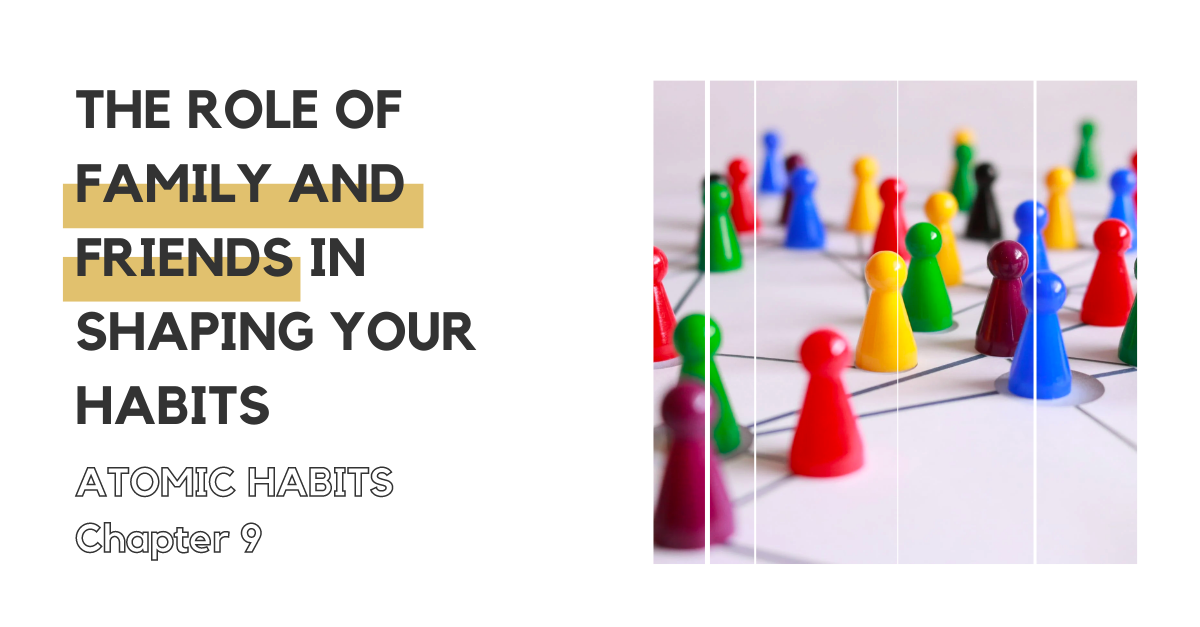‘Nothing sustains motivation better than belonging to the tribe’ – Atomic Habits, Chapter 9 Notes
Posted on: June 29, 2022
Post Category: Book Notes

About #onepageonepoint
#onepageonepoint aims to summarise new ideas from books on personal and professional development – with (approximately) one point for each page. Read more about this project here.
Today for #onepageonepoint, we have summary notes for Atomic Habits – for chapter 9: ‘The Role of Family and Friends in Shaping Your Habits’.
If you are interested in getting yourself a copy or learning more about the book, click here.
Chapter 9: The Role of Family and Friends in Shaping Your Habits
- ‘whatever habits are normal in your culture are among the most attractive behaviours you’ll find’ (Clear 2018, p. 114). This is because humans naturally imitate habits in order to fit in, bond with others and earn respect and approval of our peers.
- We follow social norms and habits handed to us by our friends, family, church/school, local community and society at large, and they become invisible rules that guide our behaviour. They also define expectations and standards for us – when and whether to get married, how many children to have, which holidays to celebrate, etc.
- If, for example, you grow up in a family that rewards you for your chess skills, playing chess will seem like a very attractive thing to do.
- Firstly, we imitate habits from those who are close to us – the closer we are to someone, the more likely we are to imitate some of their habits.
- One of the most effective things you can do to build better habits is to join a culture where your desired behaviour is the normal behaviour (and where you already have something in common with the group). This group will set expectations on what habits are “normal” and you will rise together.
- ‘Nothing sustains motivation [and behaviours] better than belonging to the tribe. It transforms a personal quest into a shared one… the shared identity begins to reinforce your personal identity’ (Clear 2018, p. 118).
- Secondly, we imitate habits from the many – whenever we are unsure about how to act, we look to the group to guide our behaviour.
- However, there is internal pressure to comply with the norms of the broader group. This is because, for humans, the reward of being accepted is greater than looking smart or finding truth.
- Change is only attractive when you are fitting in with the tribe.
- Thirdly, we imitate people who have power, prestige and status – as we are drawn to earning respect, approval and admiration.
- People tend to care so much about the habits of highly effective people, and we try to copy them because we desire success ourselves.
If you are interested in getting yourself a copy or learn more about the book, click here.
Interested in reading more? See my notes for Chapter 10.

About the author
Jason Khu is the creator of Data & Development Deep Dives and currently a Data Analyst at Quantium.